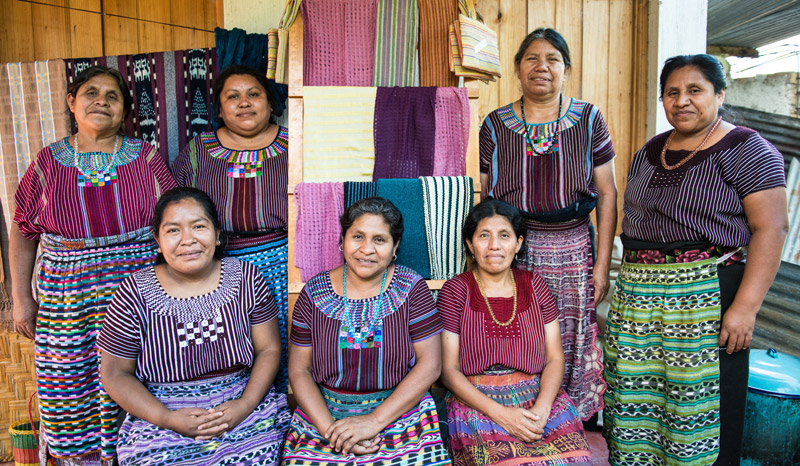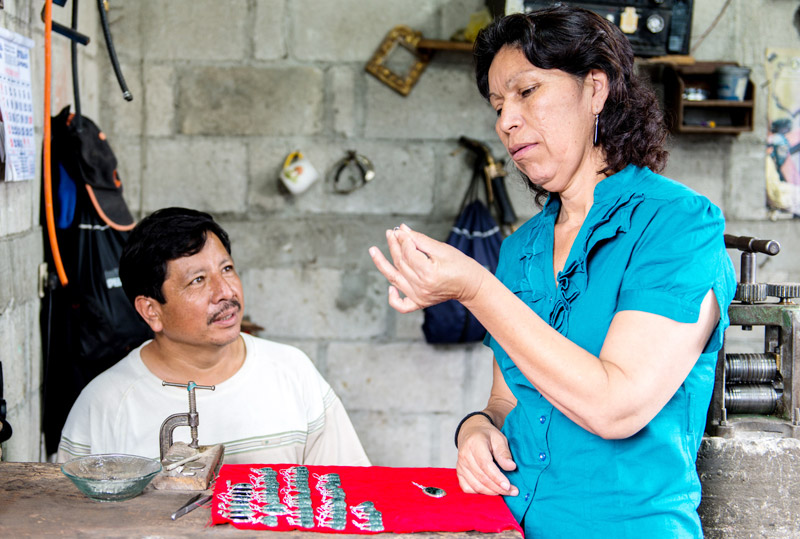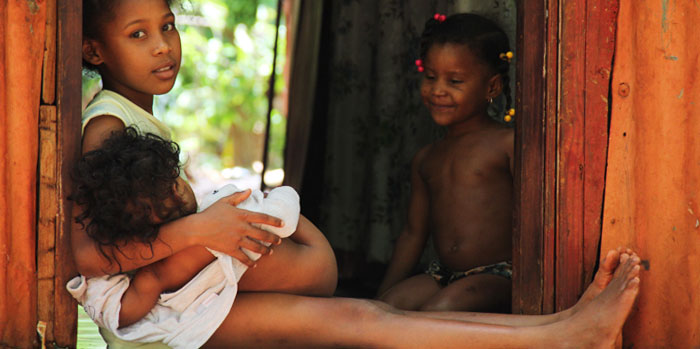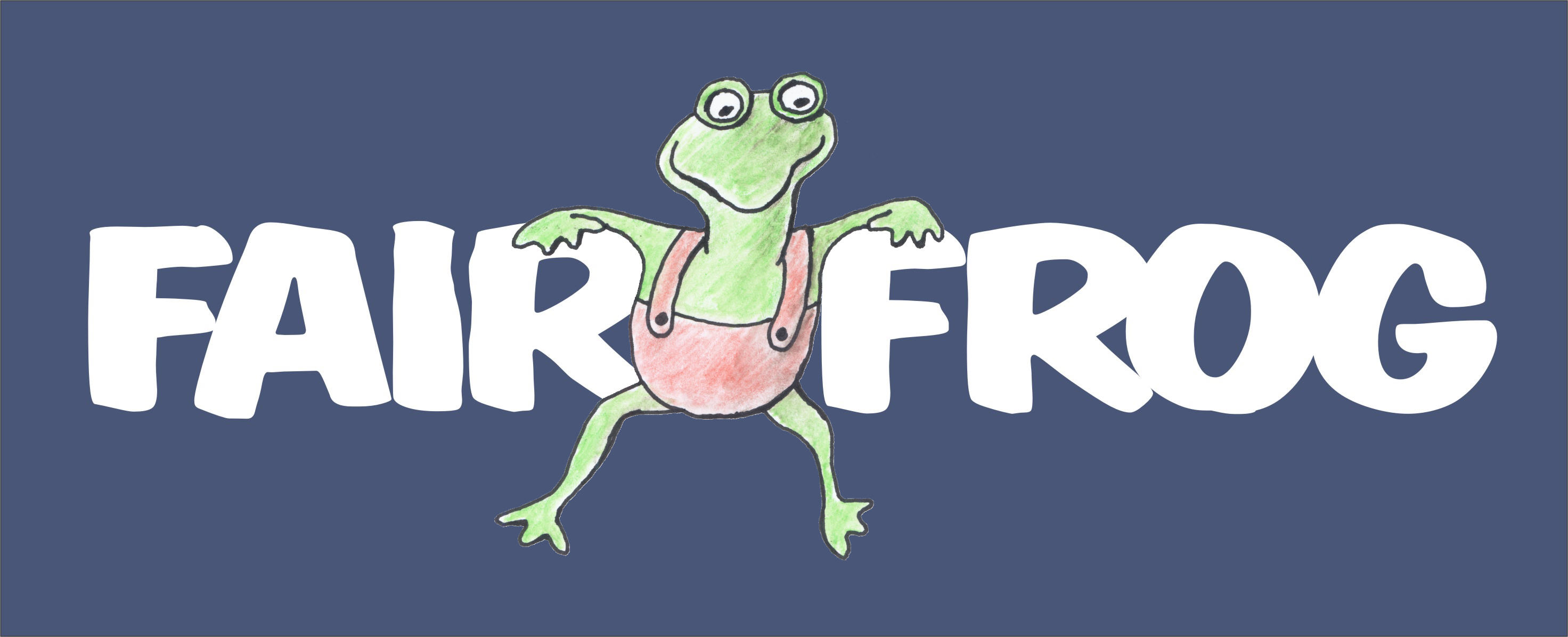Feeding their families, taking care of the house and the children, nursing the sick and the elderly, producing 50% of the world’s food supply and performing nearly 2/3 of the world’s work hours.
According to the UN, these responsibilities and many more fall on the shoulders of women of the world, who represent over half of our global population. Yet they receive only 1/10 of the world’s income and own only 1% of its property. In many places women suffer astonishing degrees of discrimination and lack of opportunity to work and thus to become self-sufficient and (financially) independent. Furthermore they are subject to disproportionate amounts of violence, discrimination, and impoverishment relative to their male fellows.
Women’s empowerment not only corrects a great injustice in the world, but sets the stage for greater reduction of poverty overall, as resources in women’s hands mean greater household expenditures on health and education (according to the World Bank).
Fairtrade creates workplaces that cultivate participation in decisions, educational programs focused on women’s and children’s health, and environments where women can network and support each other. Many artisans are able to work on products in their homes, which allows women to care for their families or perform household duties.
But how do we alleviate a problem that seems to be so systemic, so pervasive, and so entrenched in so many parts of the world?

Members of the San Jose Women´s Artisan Association in Guatemala
The key to help the world’s most marginalized women build sustainable futures for themselves and their families is economic empowerment. And the way to achieve economic empowerment is with equitable commerce models. Enter the fairtrade movement…
The big picture of the fairtrade movement is fairness for producers and suppliers — an easy enough idea to get behind, if a rather abstract one. But how does this concept of fairness translate into the day-to-day operations of fairtrade workers and organizations?
As it turns out, a commitment to non-discrimination, gender equity and women’s economic empowerment is an explicit and integral part of any fairtrade system, and one of the World Fair Trade Organization’s 10 Principles of Fair Trade. Fairtrade organizations and suppliers are not only required to make sure that women’s working conditions and compensation are fair and equal to those of men, but also that health and safety needs particular to women, such as time off for pregnant and breast-feeding mothers, are part of the equation.
In short, fairtrade suppliers must go out of their way to make sure that women are getting the support they need to lift themselves out of poverty.

Esperanza Jimenez inspects one of her family’s jade creations in Guatemala
But full employment rights and equal pay for equal work are just the tip of the iceberg. Fairtrade producers and suppliers also enable women to participate in leadership positions and have a say in shaping policy — a crucial piece of the puzzle, as women in leadership positions are more likely to continue the cycle of women empowerment and build momentum at the community level, where it’s needed most.
For many fairtrade suppliers empowering women through powerful and long-lasting fairtrade solutions has been a priority since day one. It is not a coincidence that a lot of these organisations are led by women, so gender equality is very much in their DNA 😉 They go out of their way to recruit female artisans and provide a gender balance within their artist community.
Nowadays, as the need to address gender inequality gains more and more traction around the world, socially-conscious consumers are looking for ways to target their support toward women producers.
The organisation Global Girlfriend –whose products you can find in the shop- takes it a step further; they only offer products made by female artisans. They believe passionately that economic opportunity for women holds the promise for real change in the world; because when women have an income, they reinvest in themselves and in their children’s health, education and nutrition, building stronger families and communities over time. Many women try desperately to make a living selling their artisan-quality goods but find that the old traditions of their trade handed down through generations in their communities are little valued on the local markets and that they have little access to bigger markets..
Global Girlfriend directs the charity royalty from each purchase to GROW (Girls’ Right to Opportunity Worldwide), a GreaterGood signature program dedicated to girls’ education. Every dollar raised will provide a girl with one day of education at the primary or secondary level by providing uniforms, books, tuition, room and board, safe travel to school, and any number of other typical barriers to a girl’s education.

When a girl has self-belief and is supported by her family and community; when she’s empowered with skills, ideas and knowledge; when she has access to services, role models and other girls: when she is visible and vocal – she can demand to stay in school, to get healthcare, and to get married and have children when she chooses. It is the only way to stop generational poverty.
We gladly refer you to www.mariposadrfoundation.org and www.girleffect.org for more information.


